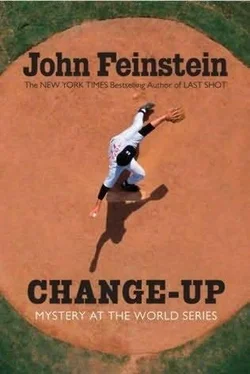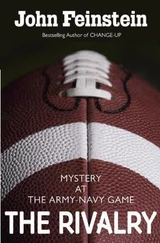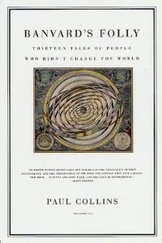“Now they do,” Stevie said, feeling very sad for Doyle and the Nats. “Now it’s okay because they’re about to tie the game.”
Doyle received handshakes and hugs all around in the Nationals dugout. Hanrahan finished his warm-up pitches and looked in at J.D. Drew, the Red Sox right fielder.
Drew had power, although it was more the line-drive-double type of power than home-run power. The Nationals moved the infield in, positioning all four of them on the grass so that they could throw home to try to get Varitek out on a ground ball and keep the Red Sox from tying the game.
“No pinch runner for Varitek?” Susan Carol asked. “Wouldn’t they want more speed at third base?”
“They’re thinking if they tie it, they don’t want their starting catcher on the bench in extra innings,” Svrluga said.
“Team that wins the toss usually wins in overtime,” Solomon said, causing everyone to look at him as if he were from Mars.
Hanrahan looked in for a sign and threw a strike, Drew taking all the way. The next pitch produced a ground ball right at third baseman Ryan Zimmerman. He scooped it on a short hop, glared at Varitek for a second, as if daring him to leave third base, then threw across the diamond to get Drew out at first by a step.
“Still alive,” Susan Carol said softly.
Stevie realized that he was also relieved to see the lead still intact. He had been so caught up throughout the game thinking about what was going on with Susan Carol that he had almost lost track of the fact that he might be witnessing history. Now, with the no-hitter gone, he wanted very much to see Doyle at least get the win and to see the Nationals even the series at one game apiece.
Red Sox manager Terry Francona had decided to go to his bench, bringing up Julio Lugo to pinch-hit for shortstop Nick Green.
The whole stadium was standing now, wanting Lugo to at least get the tying run in with less than two outs. Hanrahan, knowing that Lugo had home-run power, worked carefully, falling behind 2-1 before Lugo fouled a pitch off with a vicious swing.
“He just missed hitting that pitch a long way,” Maske said.
Hanrahan was like most relief pitchers in that he never used a windup, just pitching out of the stretch because he often came in with runners on base. Now he stretched and threw again.
Lugo reached out for the pitch and hit a fly ball to right field. It wasn’t deep, but it wasn’t shallow. Austin Kearns took a step back and then came in to make the catch, clearly trying to get himself in position to make a throw to home plate. Varitek tagged up, Kearns made the catch, and Varitek took off for home.
“This is going to be close,” Stevie heard Susan Carol say, even over the din of the crowd.
Kearns ’s throw was strong but just a little bit off-line on the first-base side of the plate. Varitek started to slide as the ball was arriving, and Nationals catcher Wil Nieves grabbed the ball out of the air and dove back in, trying to get the ball on Varitek before Varitek got to the plate.
Varitek, Nieves, and the ball-in Nieves’s glove-appeared to arrive all at the same moment. Nieves landed almost on top of Varitek’s legs, applying a tag as Varitek slid into home. Plate umpire John Hirschbeck stared at the two men for a moment, then pointed at Nieves’s glove, which he was holding in the air to show that he still had the ball. Hirschbeck’s arm came up in the air, and Stevie thought he heard him say, “You’re out!” even though he couldn’t possibly have heard him from so far away in the cauldron of noise. Nevertheless, the arm raised in the air was enough. It was a double play. Varitek was out. The game was over. Somehow the Nationals had won, 1-0.
As soon as Hirschbeck gave the out call, Susan Carol jumped from her seat, yelling, “They did it, they did it!”
Stevie had also jumped from his seat and, instinctively, he turned to hug Susan Carol. She did the same thing. Then, almost in midhug, they both stopped, awkwardly pushing back from one another.
The reaction of the other writers around them was considerably more subdued: they were clearly surprised by the sudden ending but not emotional. Stevie had covered enough sporting events to know that journalists taught themselves to try not to show emotion even if they felt it.
Seeing that she and Stevie were the only ones who appeared excited, Susan Carol calmed down quickly. “That was an amazing game,” she said, as if defending herself.
“Yes, it was,” Stevie said, trying to sound cool and restrained-even though he didn’t feel the least bit cool.
Then they gathered up their notebooks and followed everyone else in the direction of the clubhouses.
IT TOOK SEVERAL MINUTES to make their way through the crowds to the locker room area, which, unlike in the newer ballparks, was not on a separate level where there was no public access. The media had to stand against a wall so that fans could pass by on their way out of the ballpark.
As planned, Stevie went first to the interview room to meet Bobby Kelleher and the other Herald staffers at the game. They would discuss their postgame plans-who would write which stories. There wasn’t much doubt what the story of the game was: Norbert Doyle.
Kelleher, who had taken the elevator from the main press box along with Nationals beat writer Doug Doughty, was waiting in the back of the room when Stevie walked in. Susan Carol had gone to wait outside the Nationals clubhouse, having already talked to Tamara Mearns by cell phone.
“Nice of Doyle to turn what was a decent news story into a made-for-TV movie, wasn’t it?” Kelleher said when he spotted Stevie.
“What happens with my story now?” Stevie asked, then realized he was being selfish thinking about that first.
“Good question, actually,” Kelleher said. “I already talked to the desk. They’re going to insert a couple of paragraphs up high about how Doyle pitched tonight, but leave most of the game description for the game story and my column.” He smiled. “There is one other change.”
“What’s that?”
“The story was inside the Sports section for the early edition. Next edition it’s on the front page.”
“Of the Sports section, right?”
“Of the newspaper,” Kelleher said. “You did it again, kid.”
Stevie felt good about that, although he knew he’d backed into the A1 story. Still, like Doyle in the eighth inning, he didn’t mind catching a break or two.
“So what’s my sidebar now?” he said, hearing a microphone being tested in the background. Deadline was closing in.
“Wil Nieves,” Kelleher said. “He’s a good story in himself-journeyman catcher, up and down from the minors his whole life. He was Mike Mussina’s personal catcher for a while in ’07. Doyle pitches kind of like Mussina-changes speeds, good control, doesn’t throw hard. Plus, Wil’s a good guy. You may have to wait him out a little bit, though, because a lot of people are going to want to talk to him about the last play at the plate.”
“And you’ll do Doyle?”
Kelleher grunted. “Everybody will be doing Doyle,” he said. “He’ll come in here first, which will be okay. It will be a mob scene when he goes back to that tiny clubhouse and all the columnists want to talk to him some more.”
“Columnists like you?”
“Yup. This guy is now officially the story of this World Series-maybe even if he never throws another pitch.”
“He’ll pitch again after tonight, won’t he?”
“Oh, he’ll pitch game six or game seven,” Kelleher said. “But there’s no guarantee there will be a game six or a game seven. Who knows? Maybe the Nats will win in five.”
Now that , Stevie thought, would be a storybook ending.
Читать дальше












